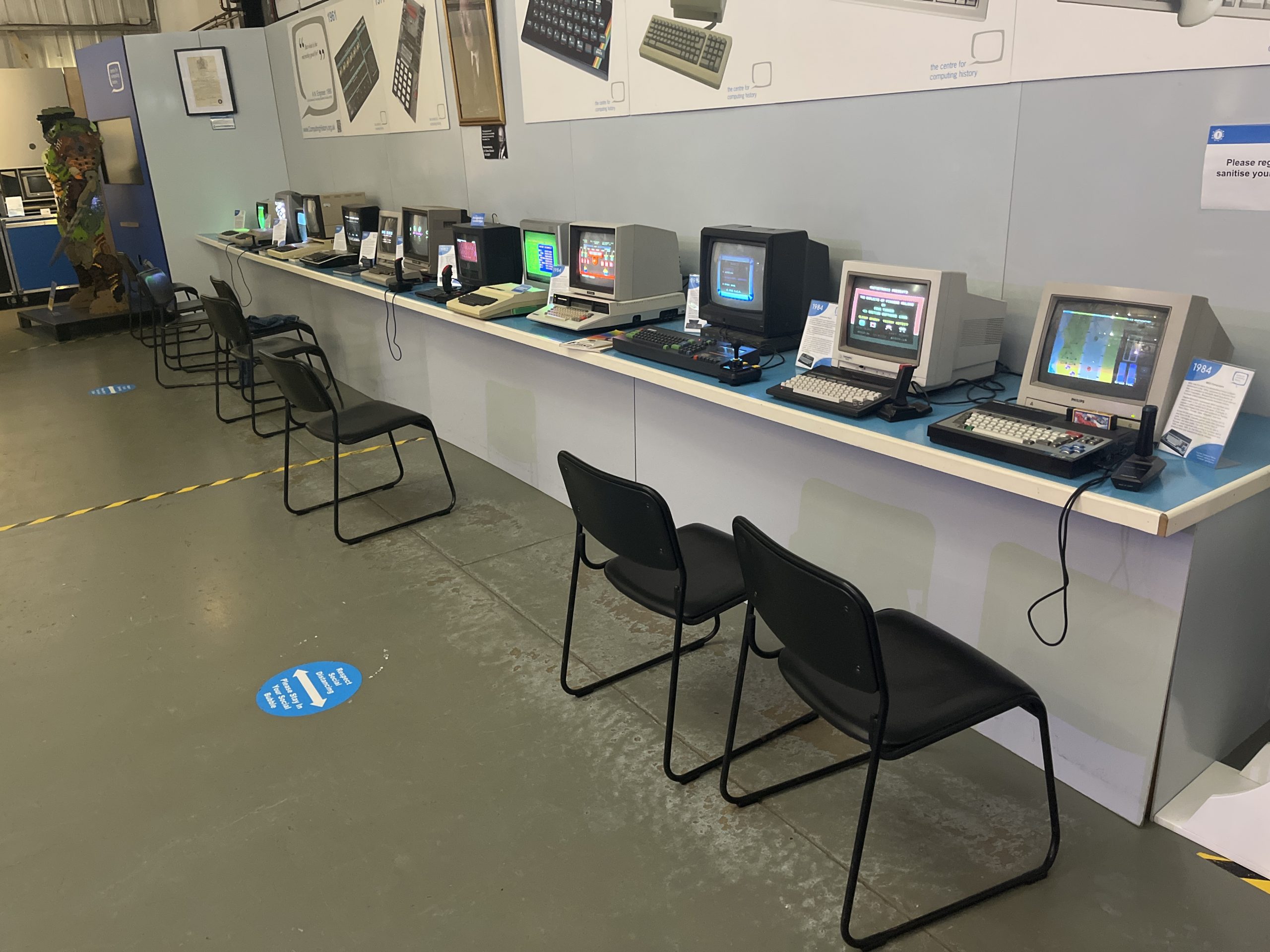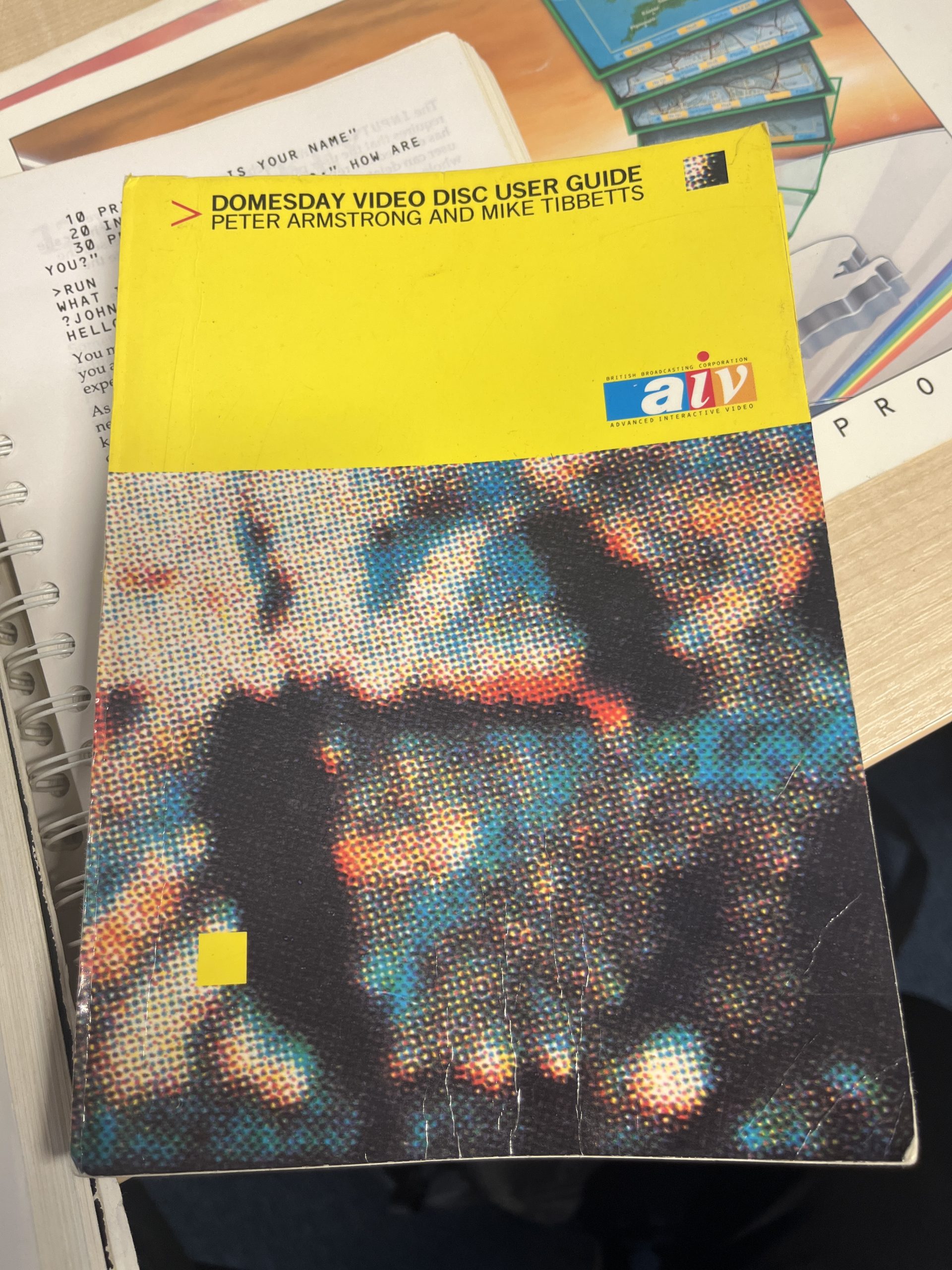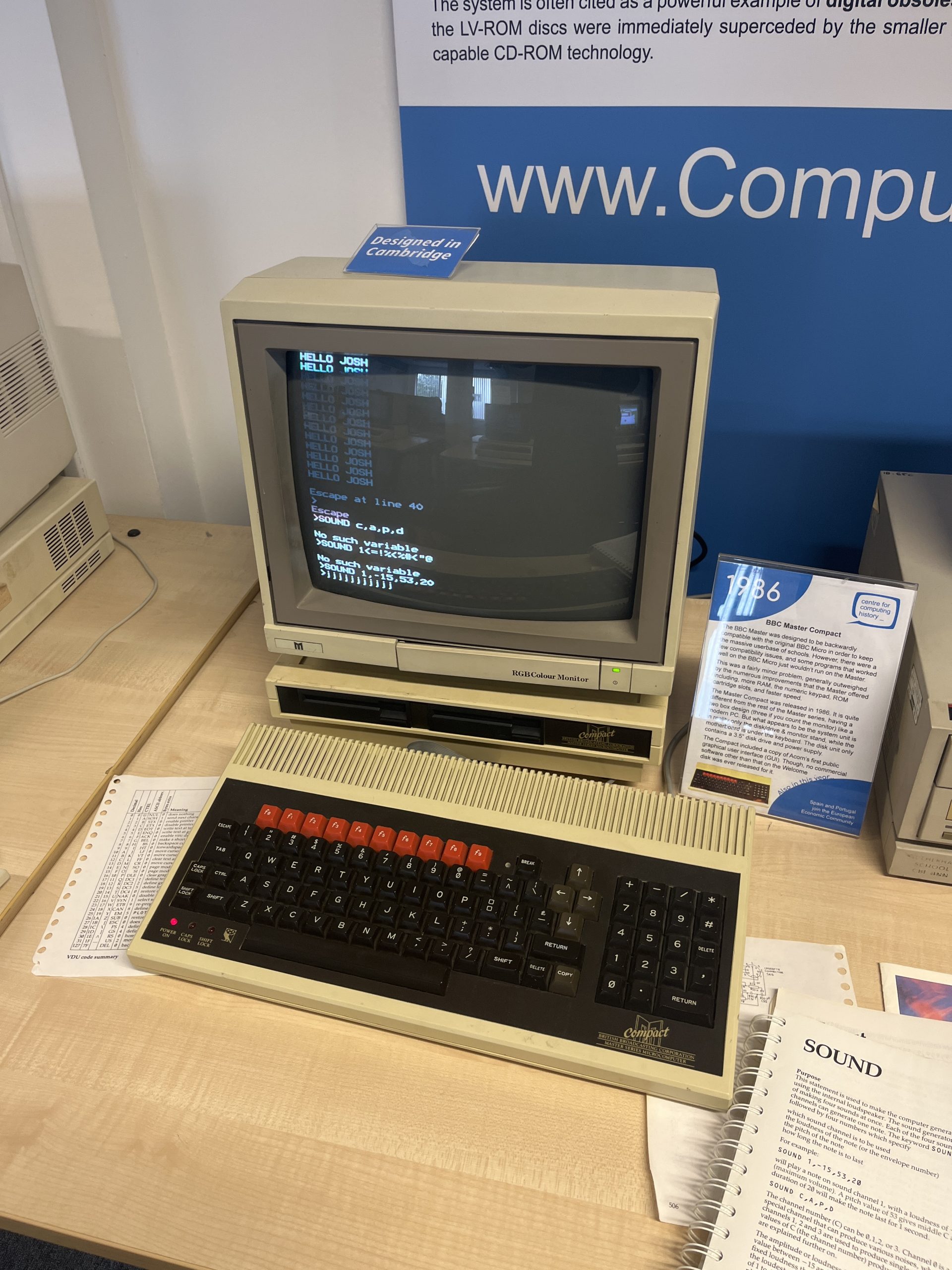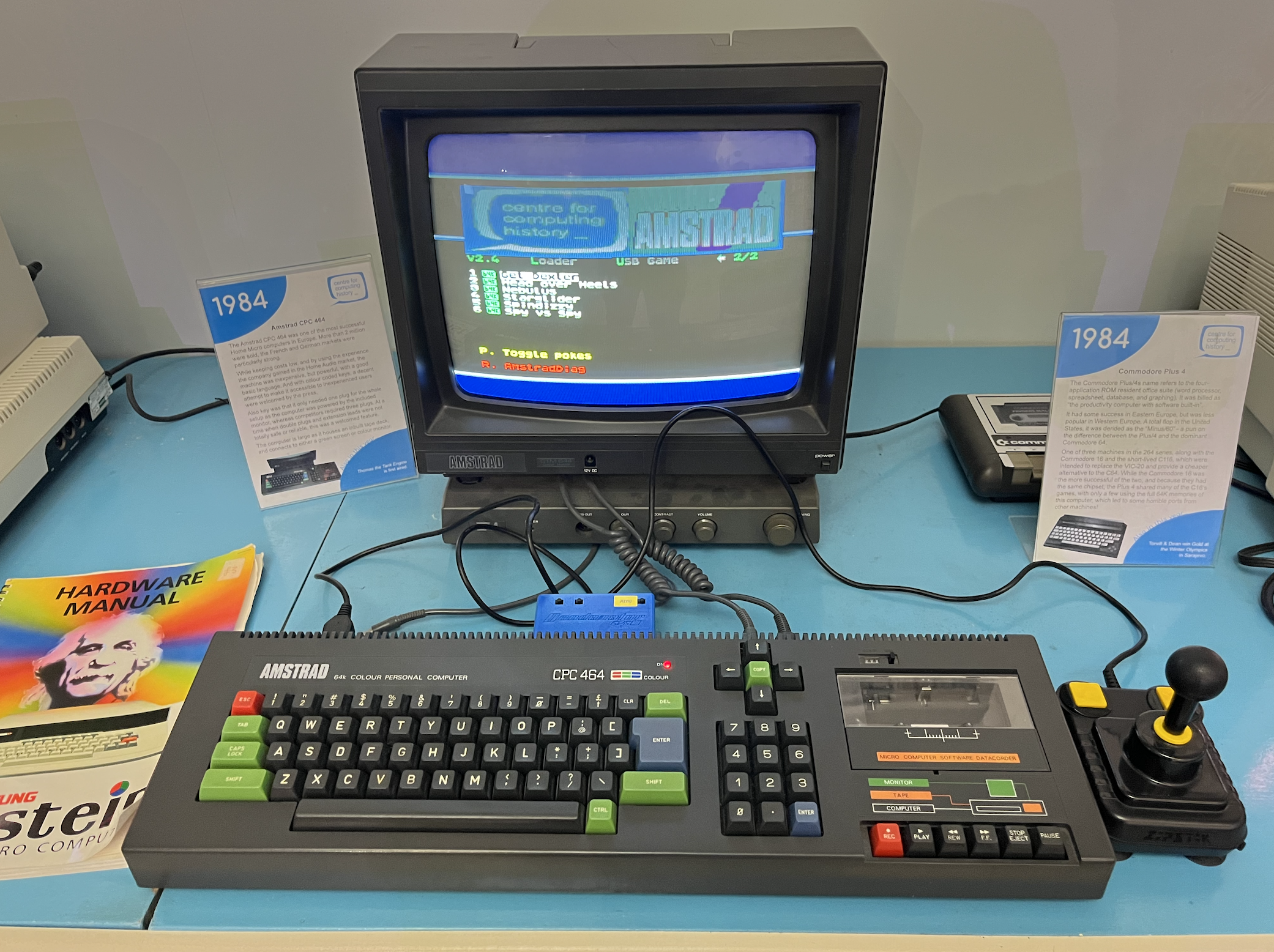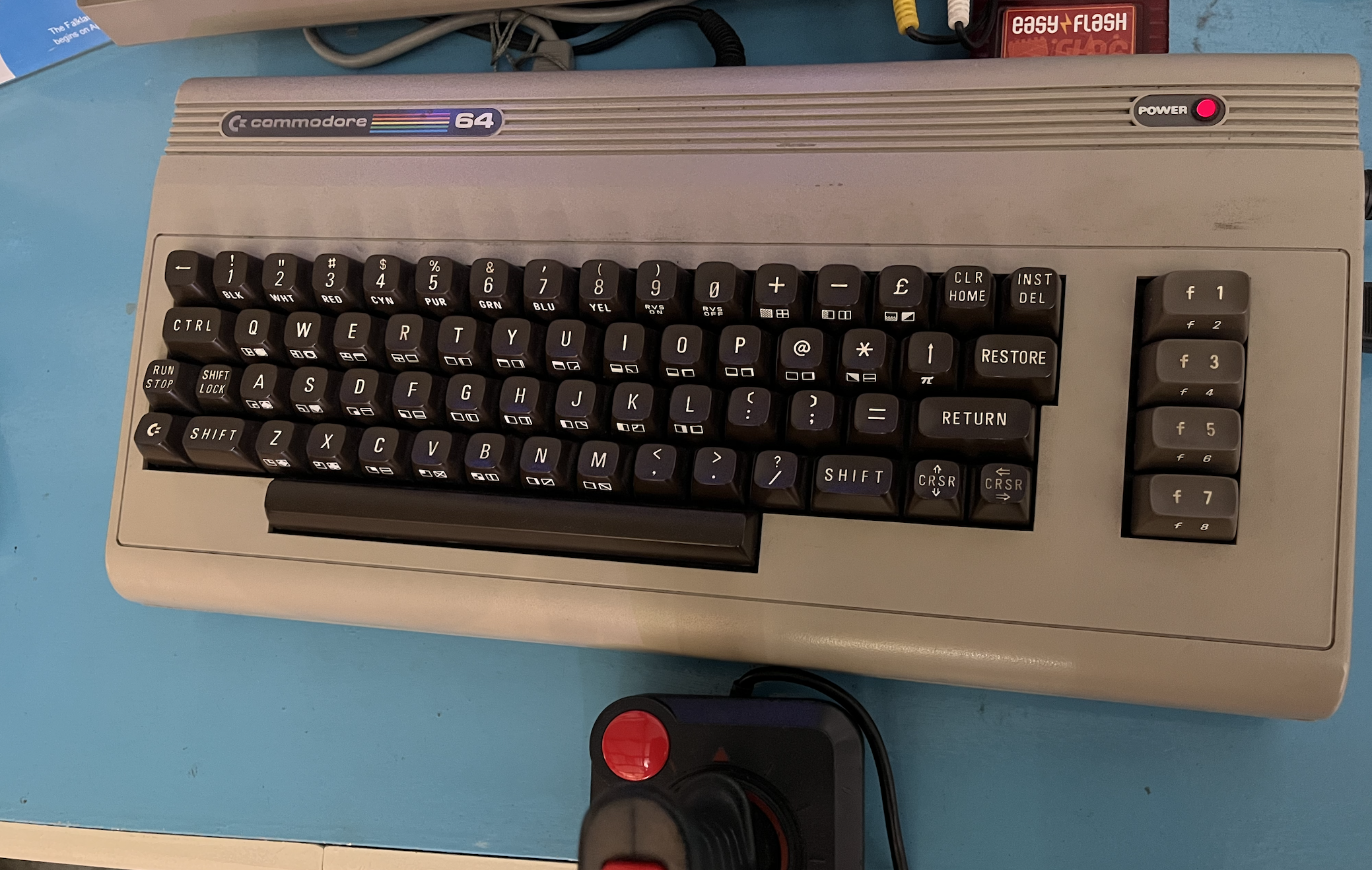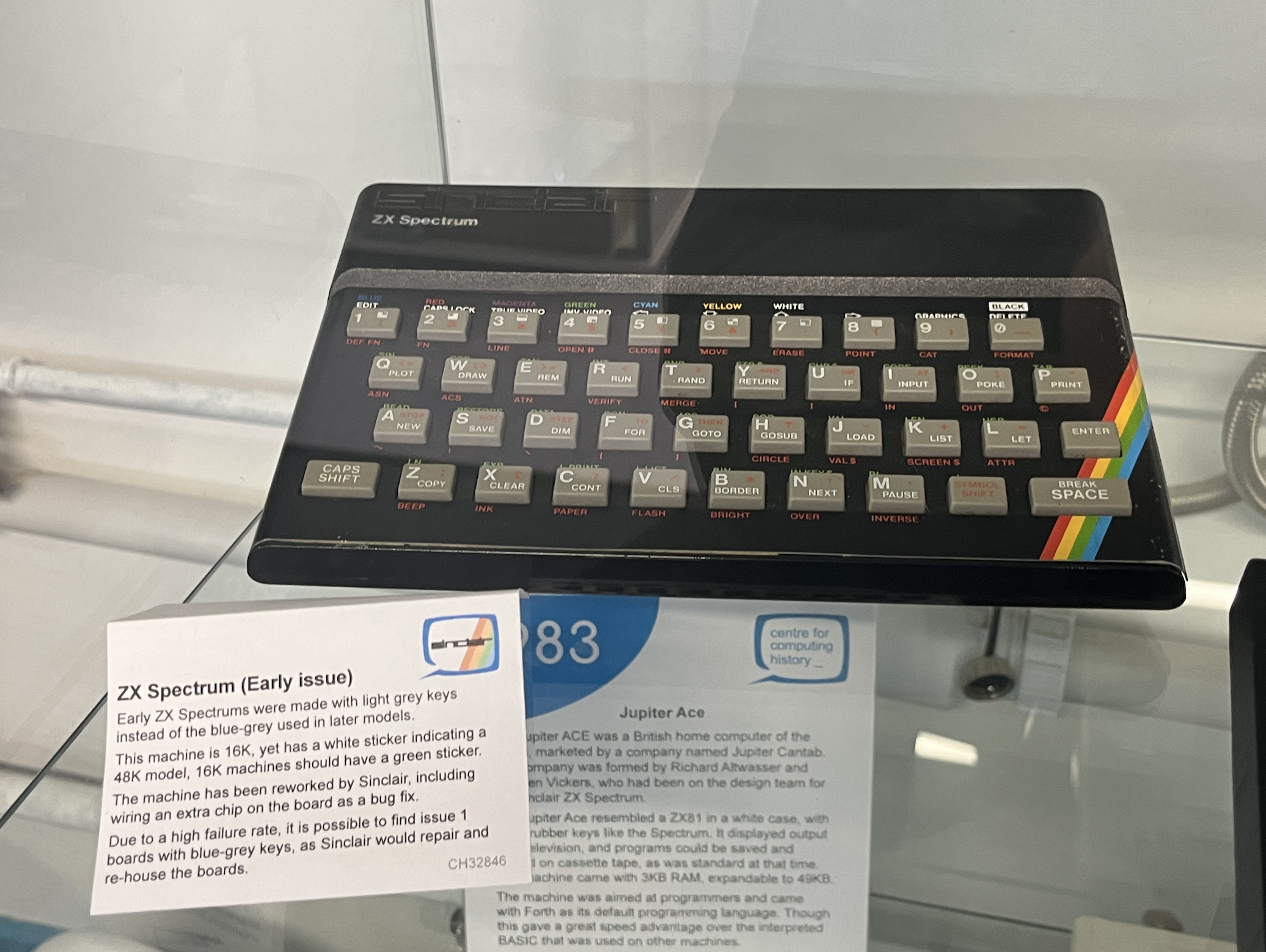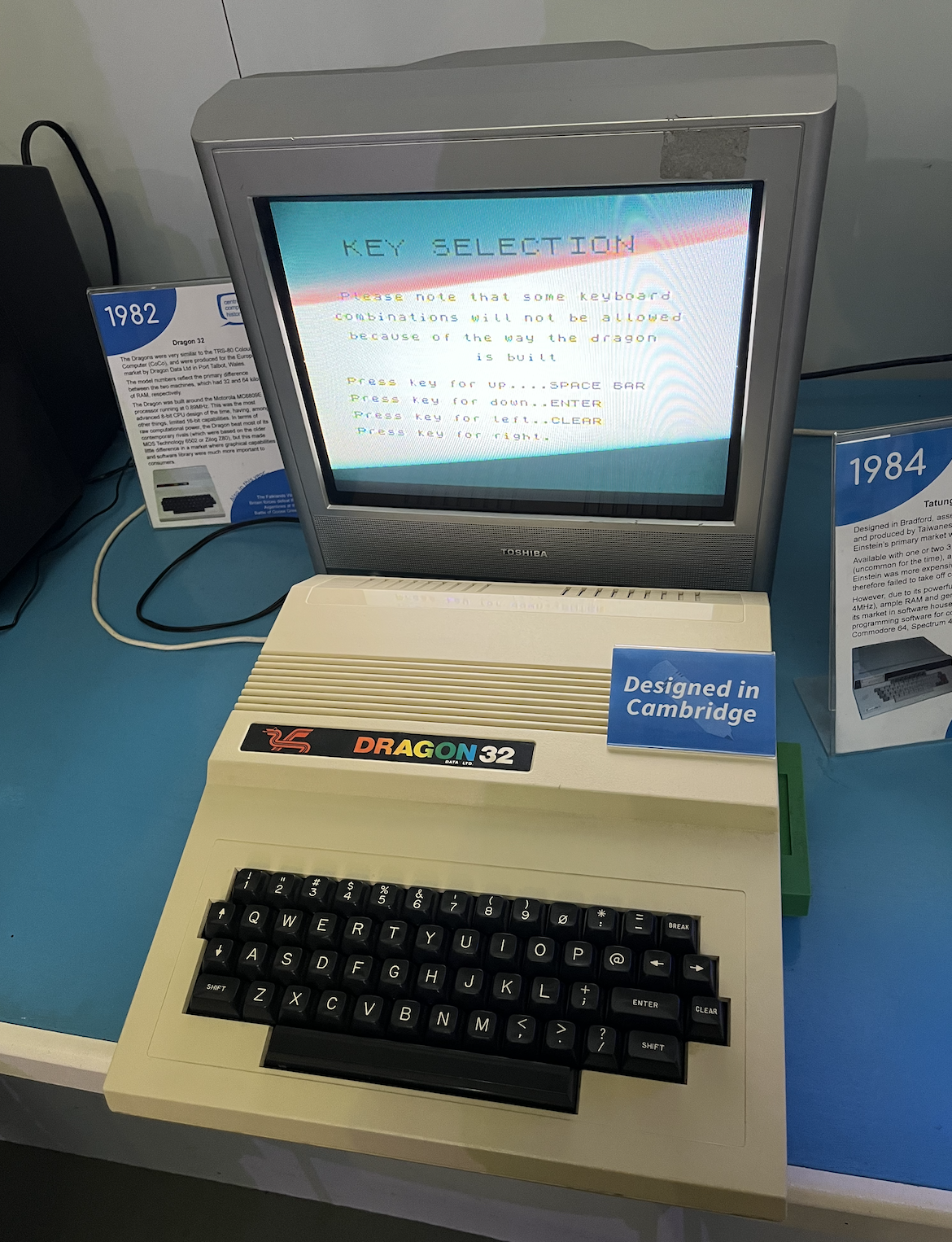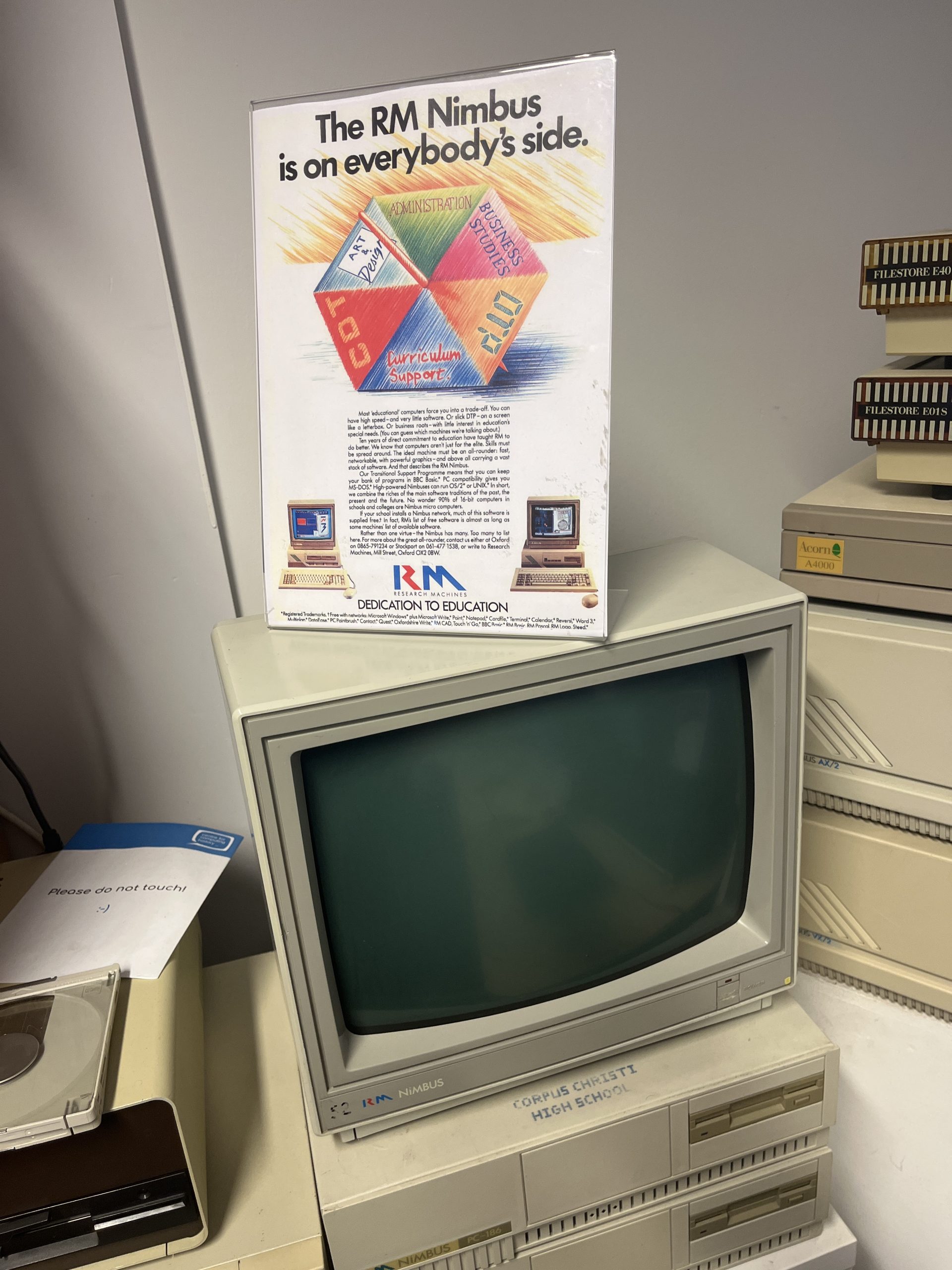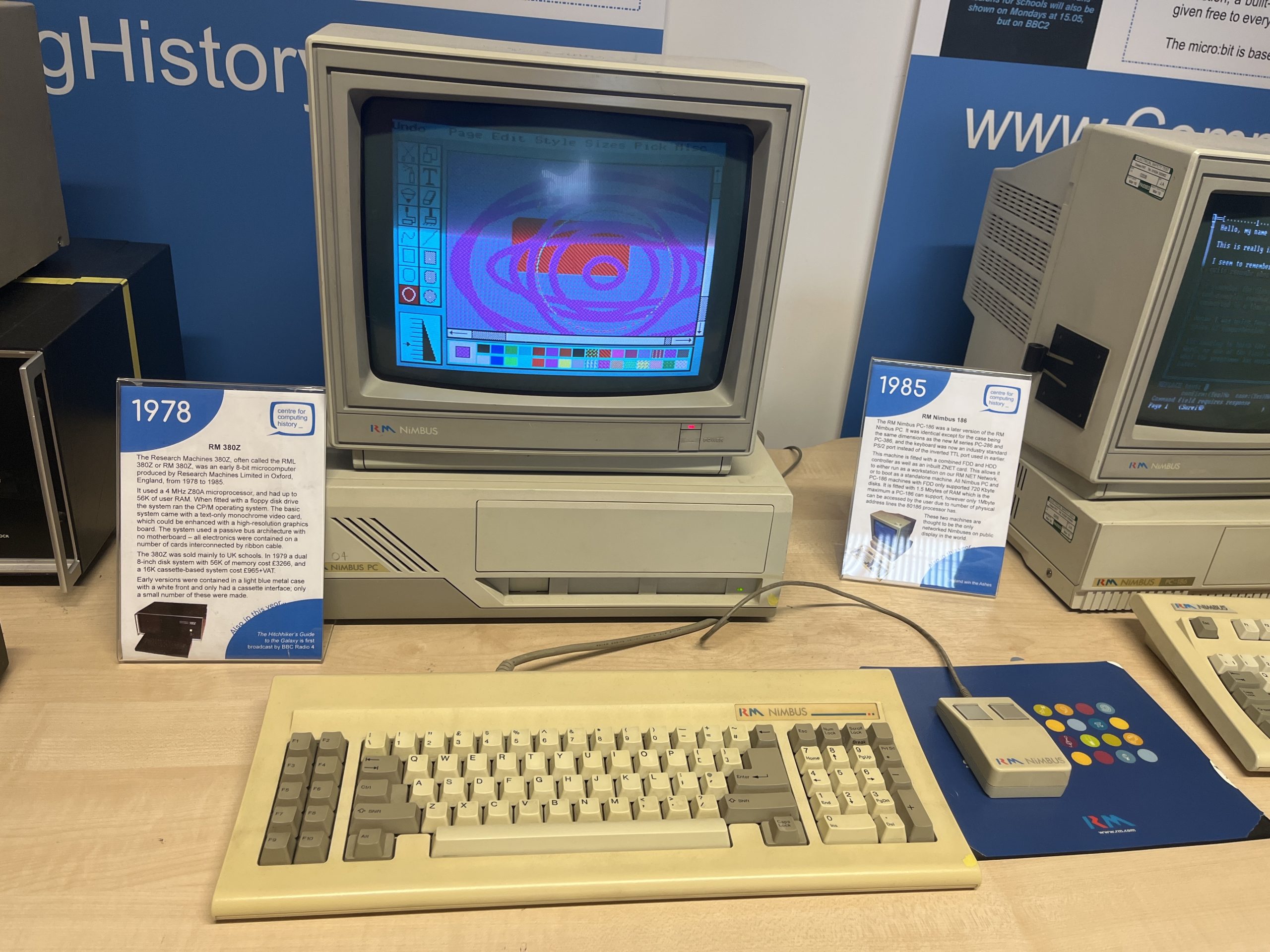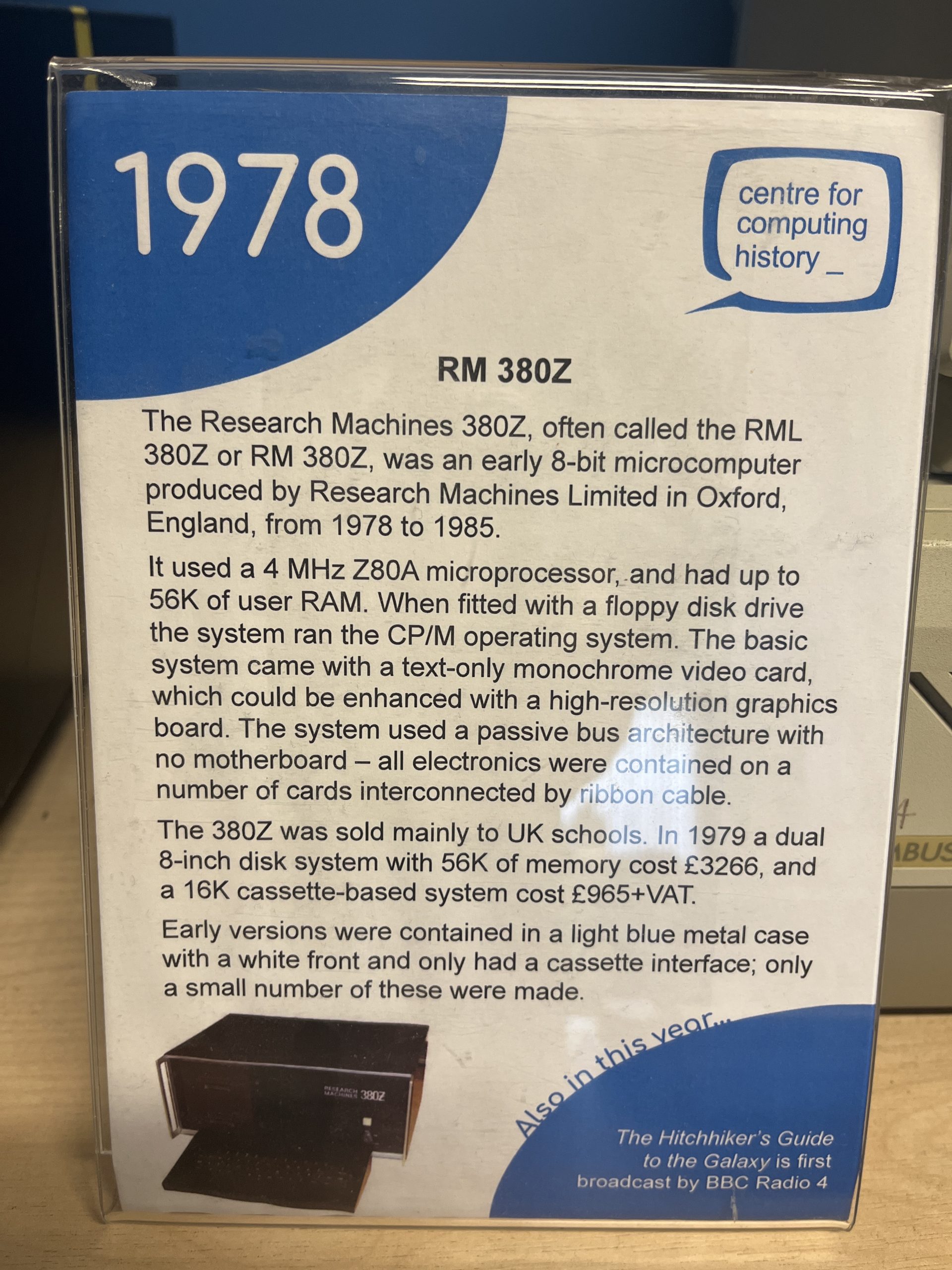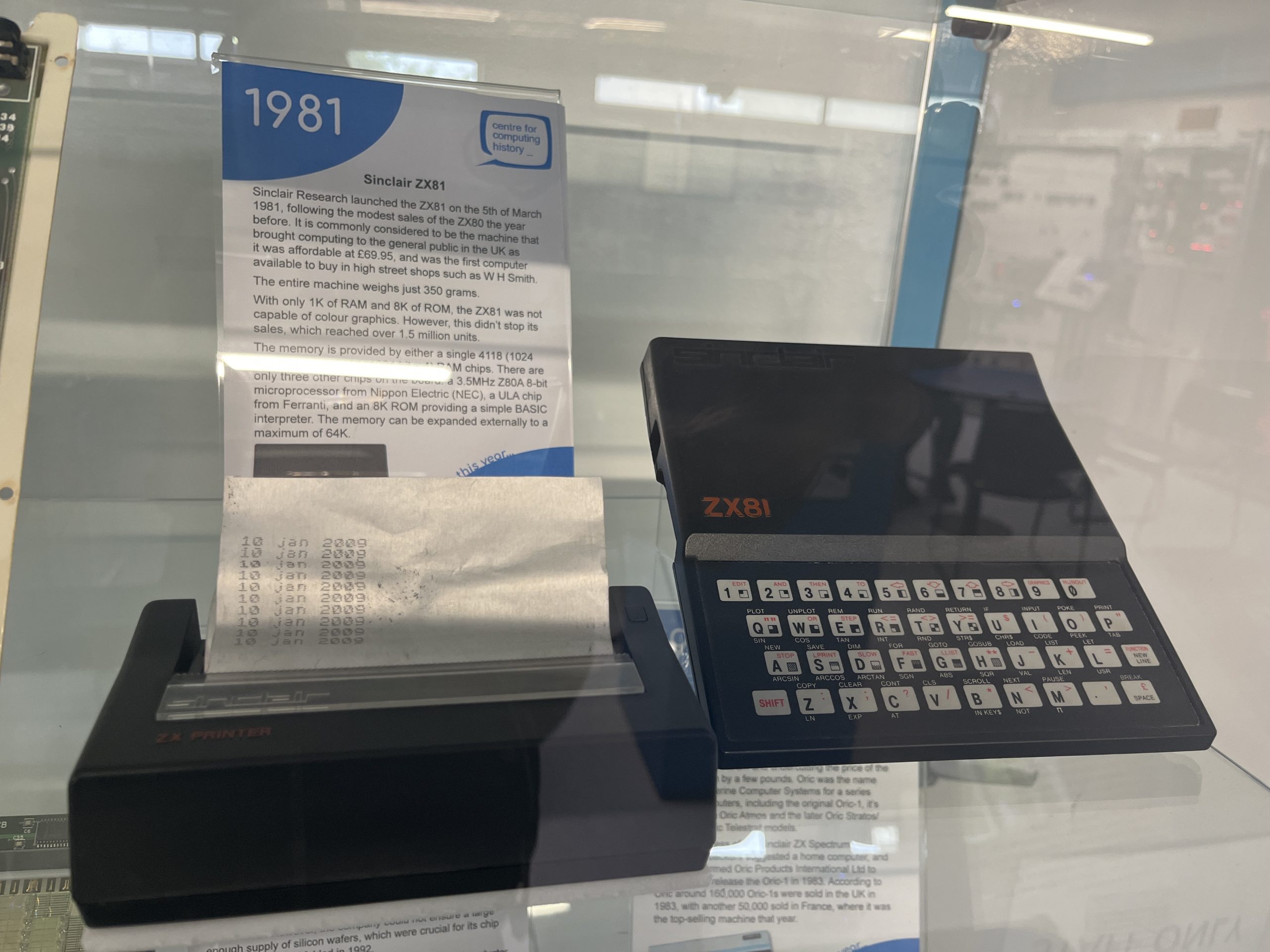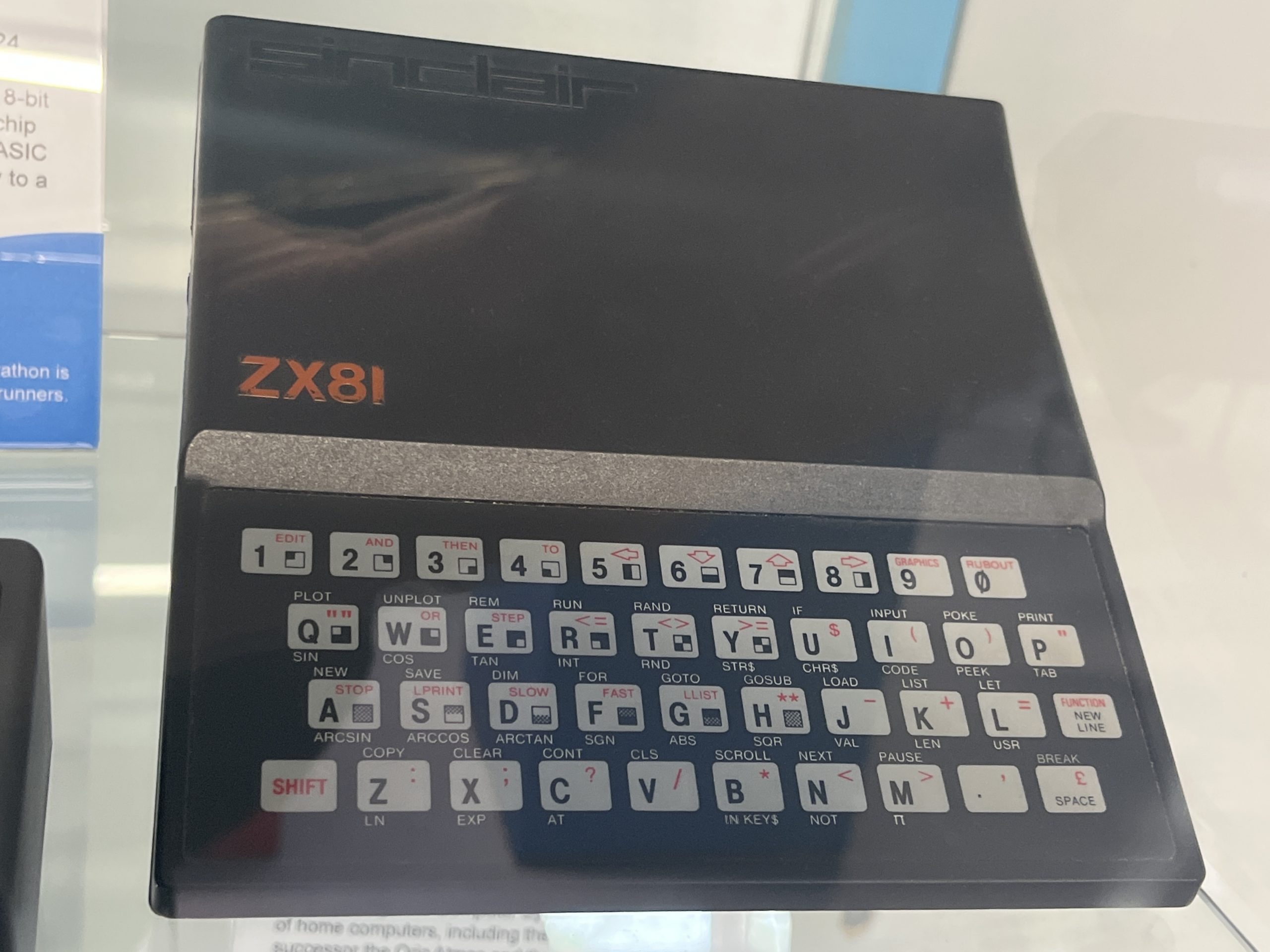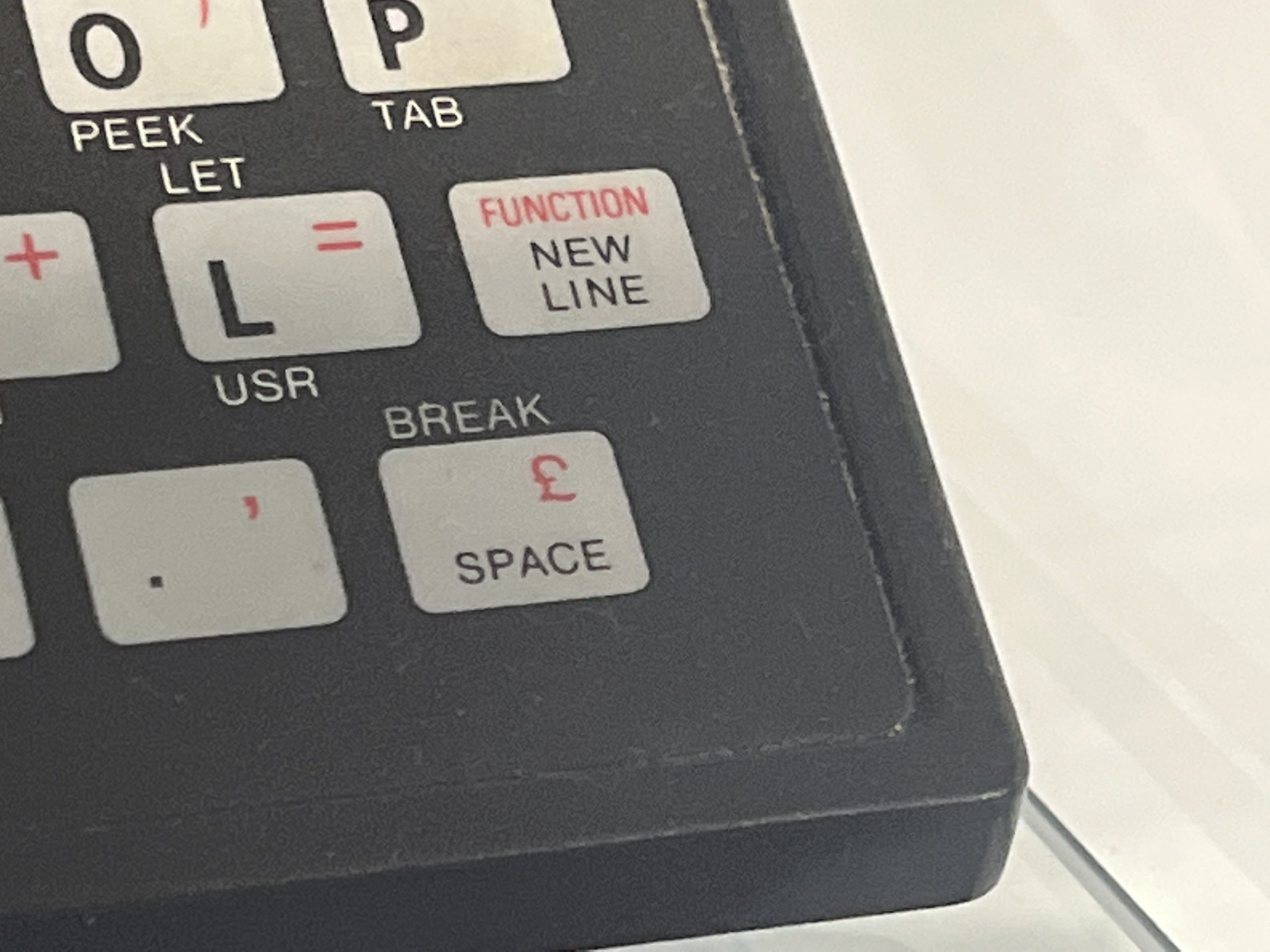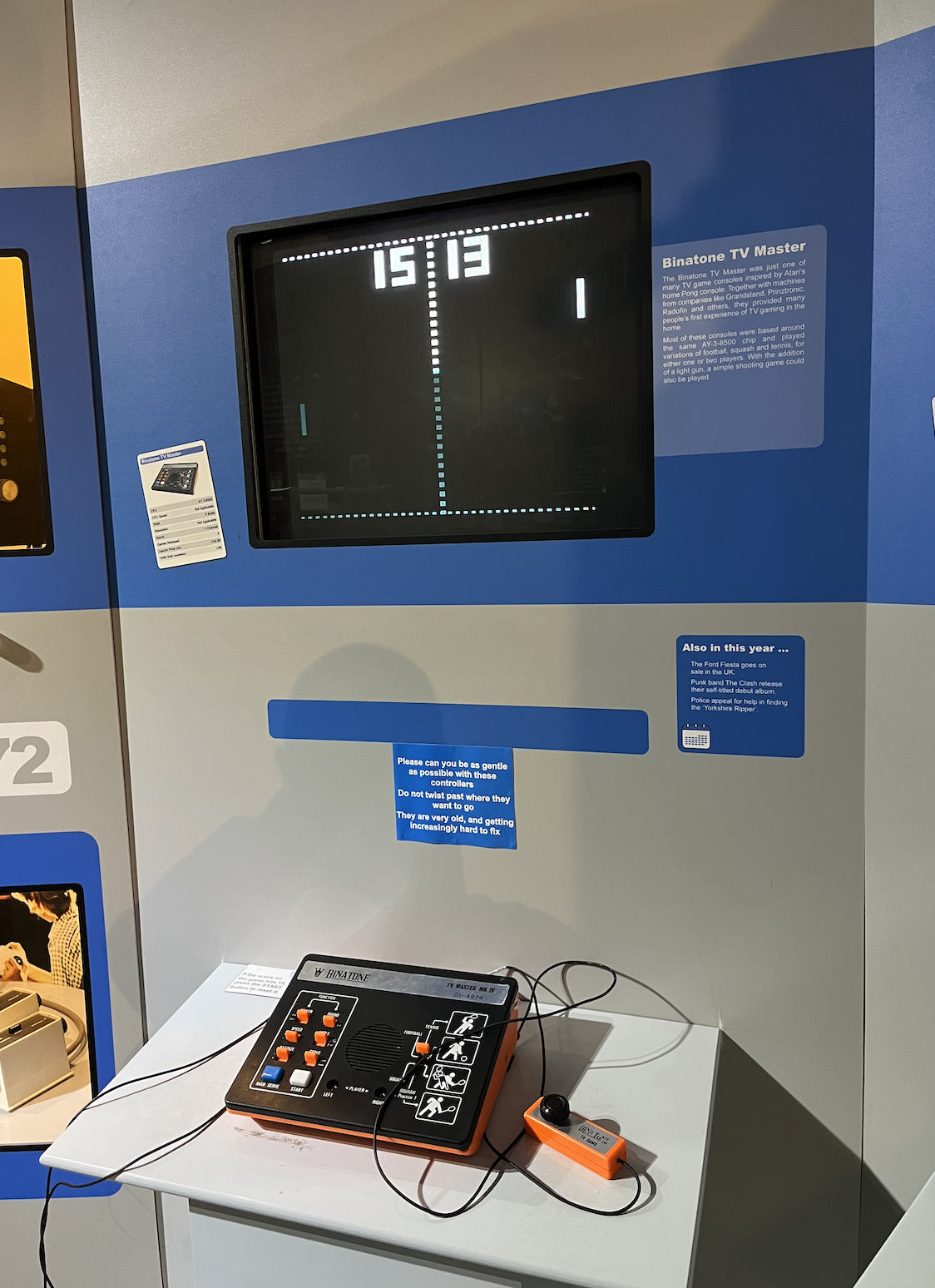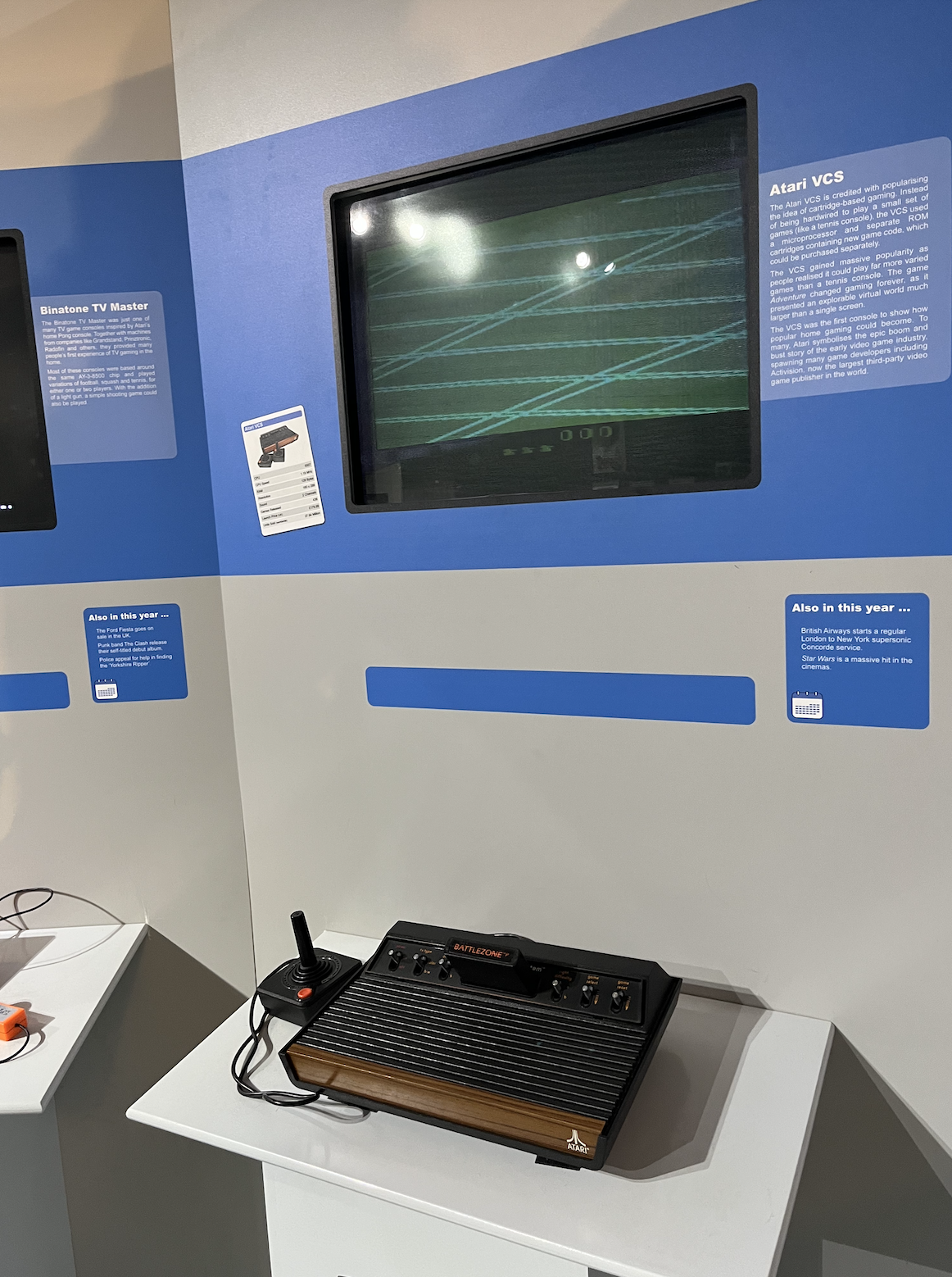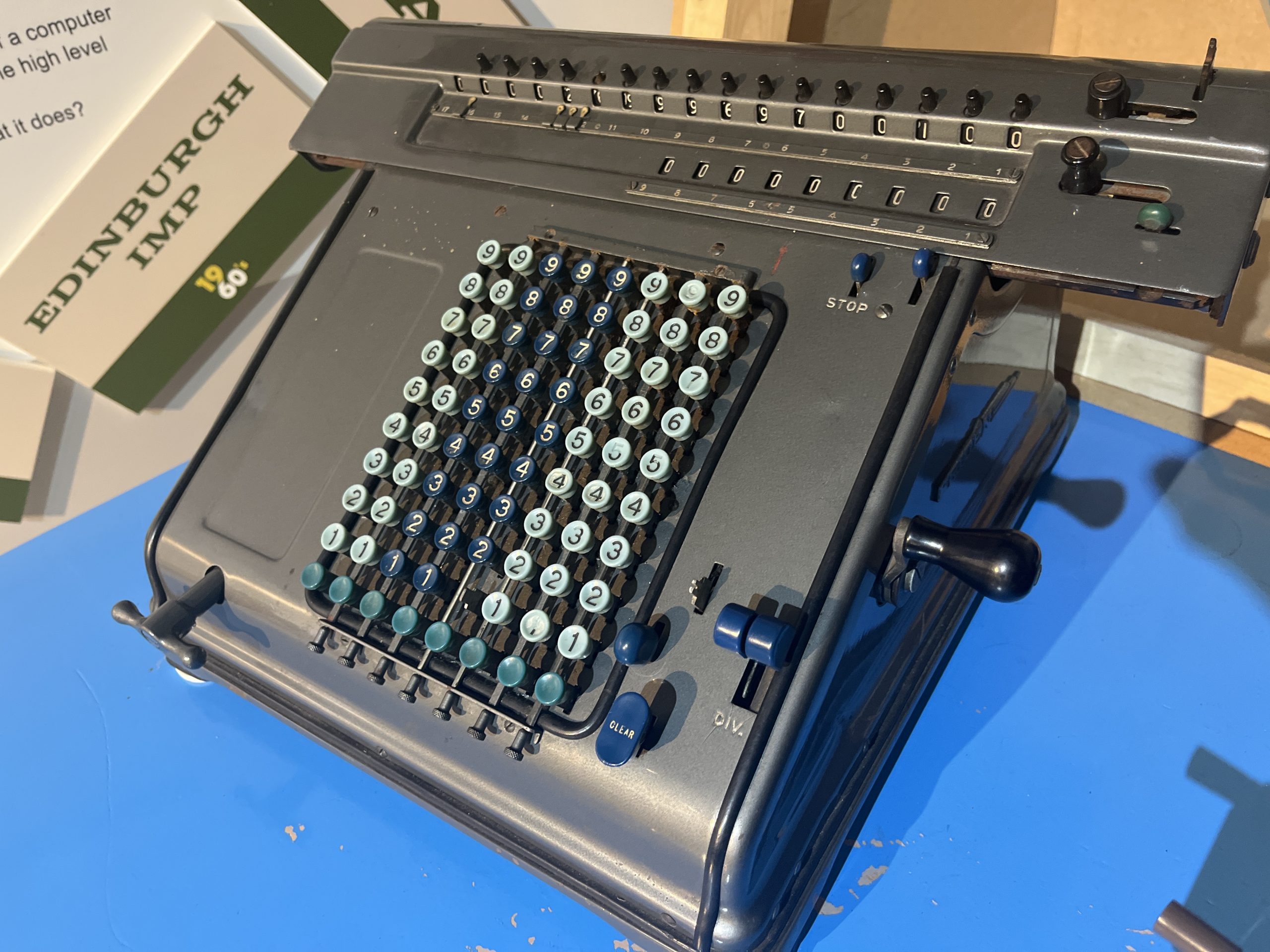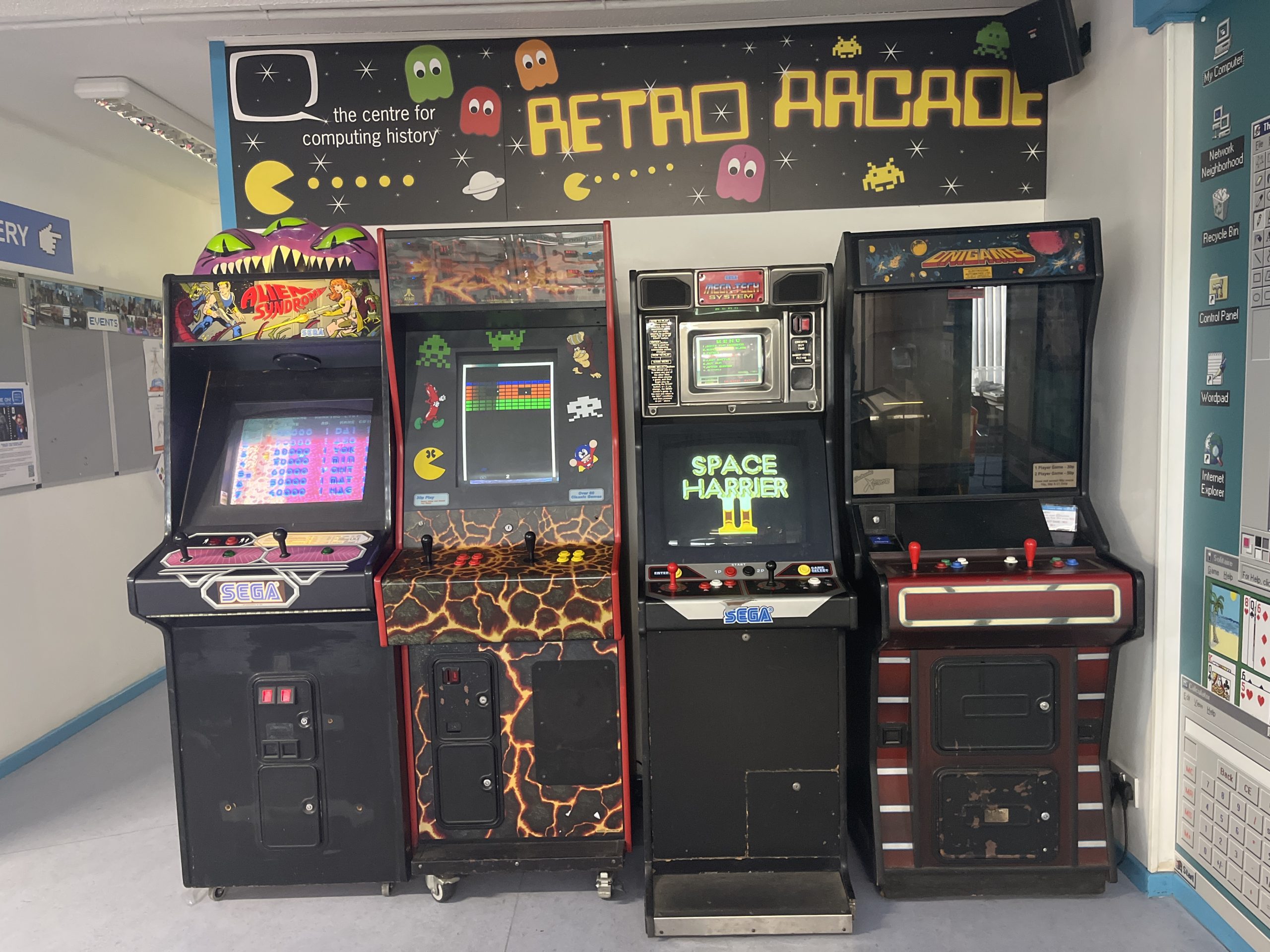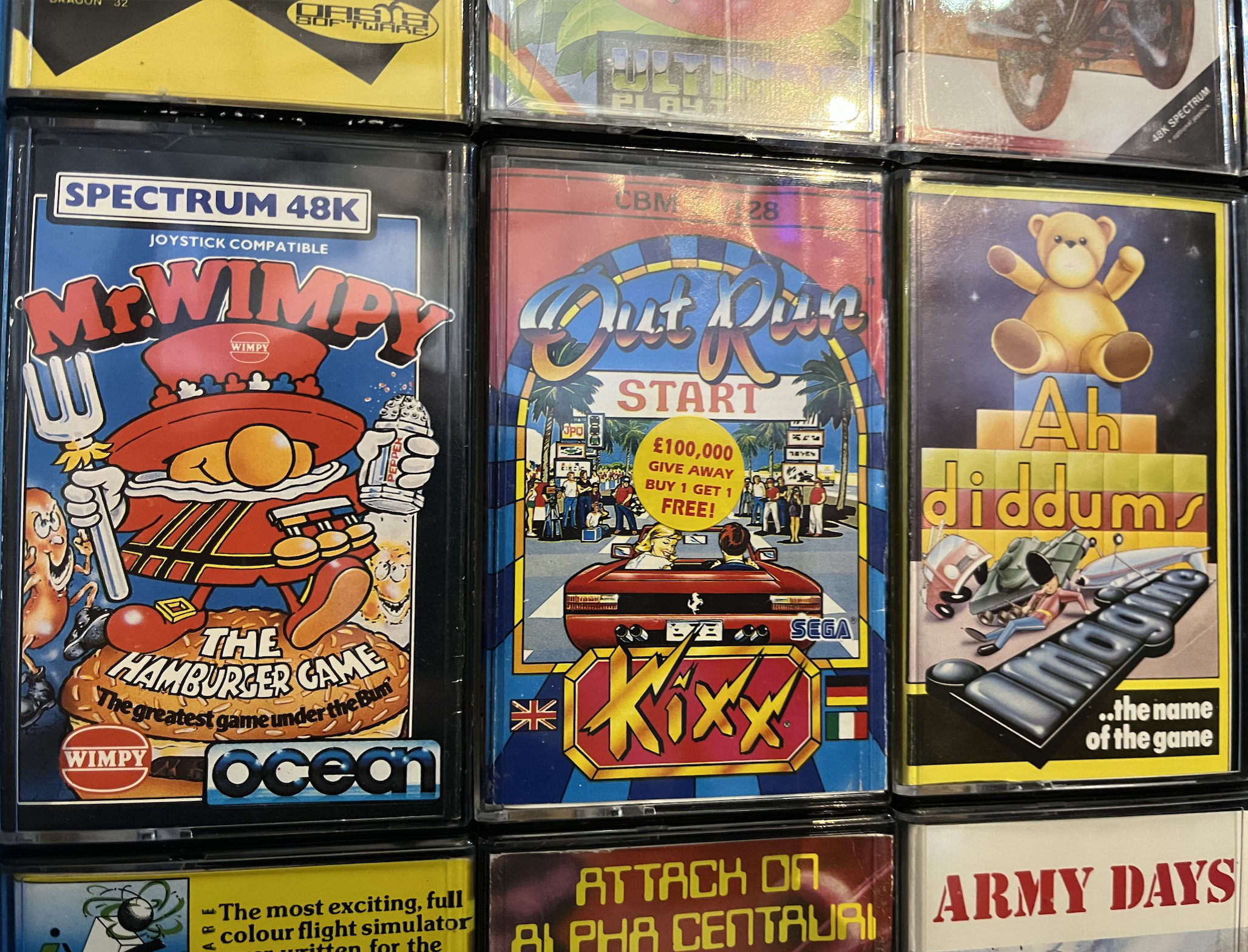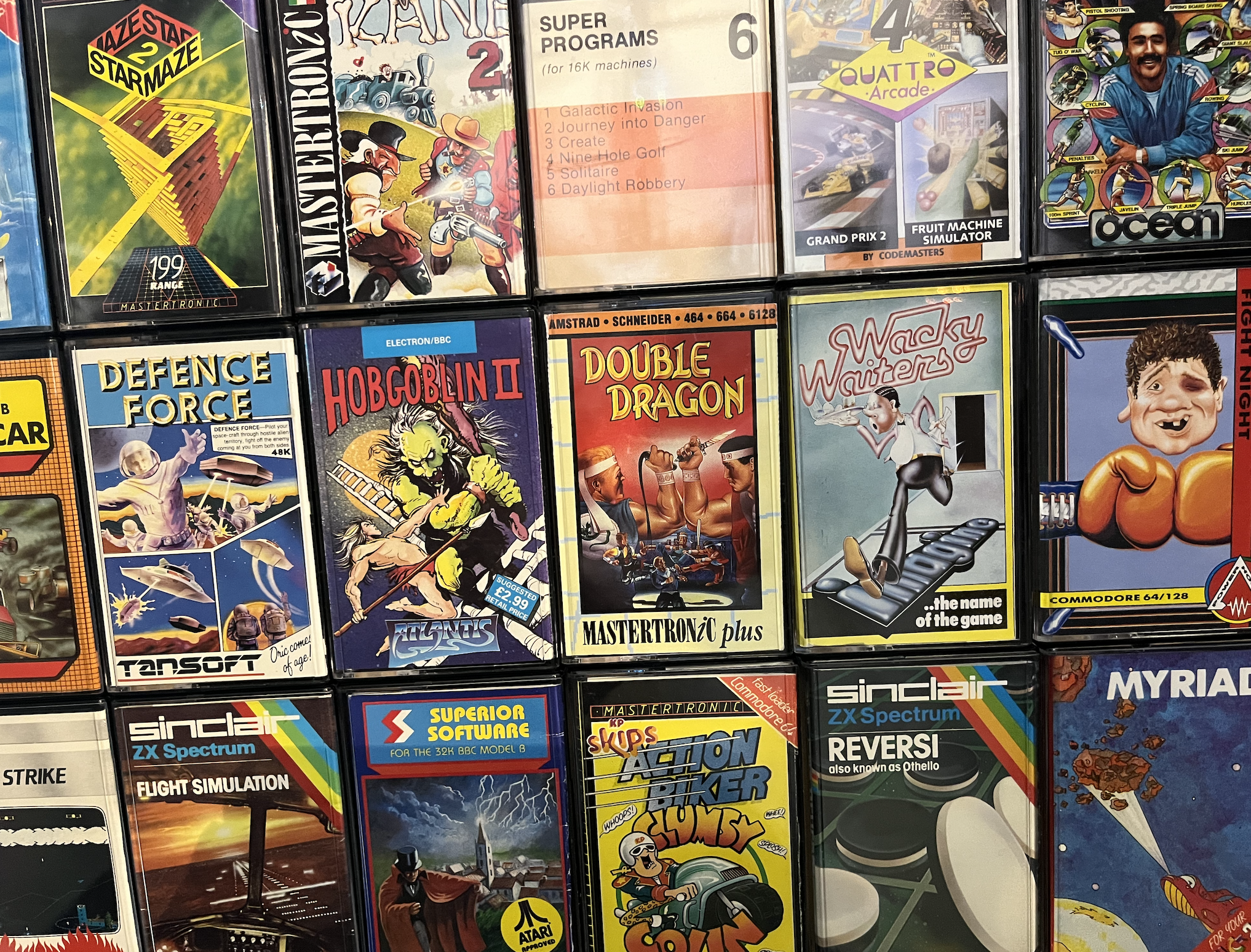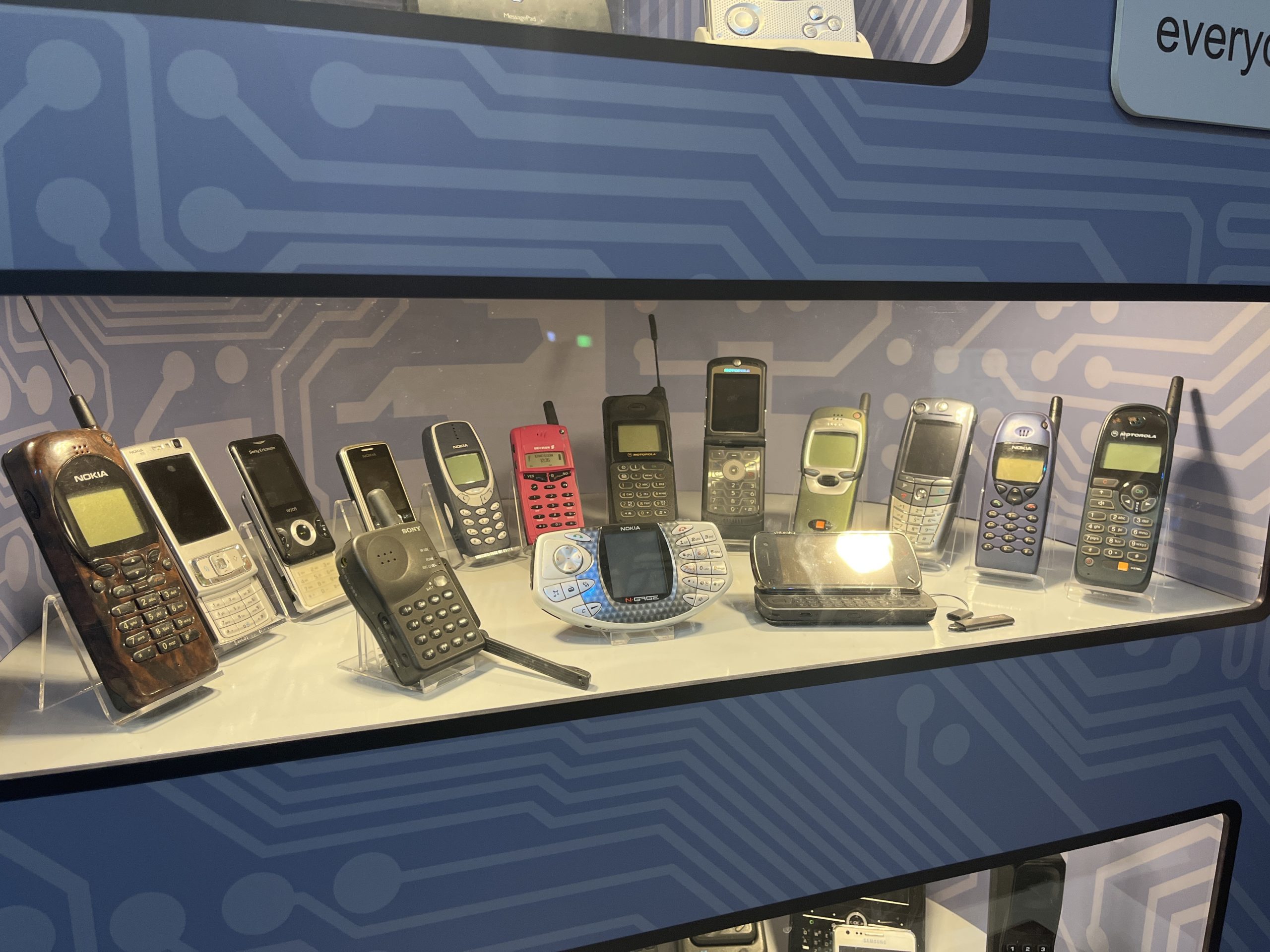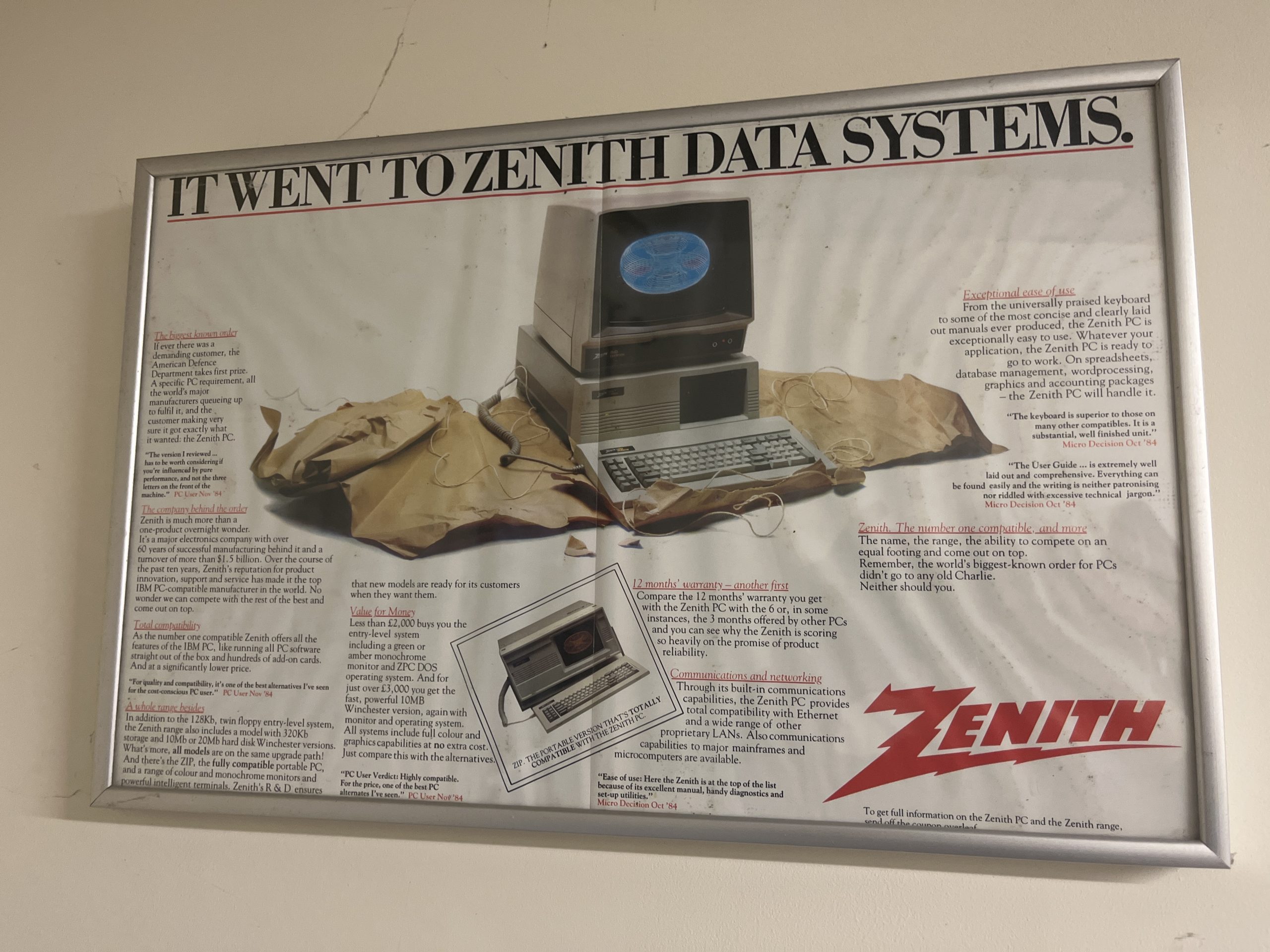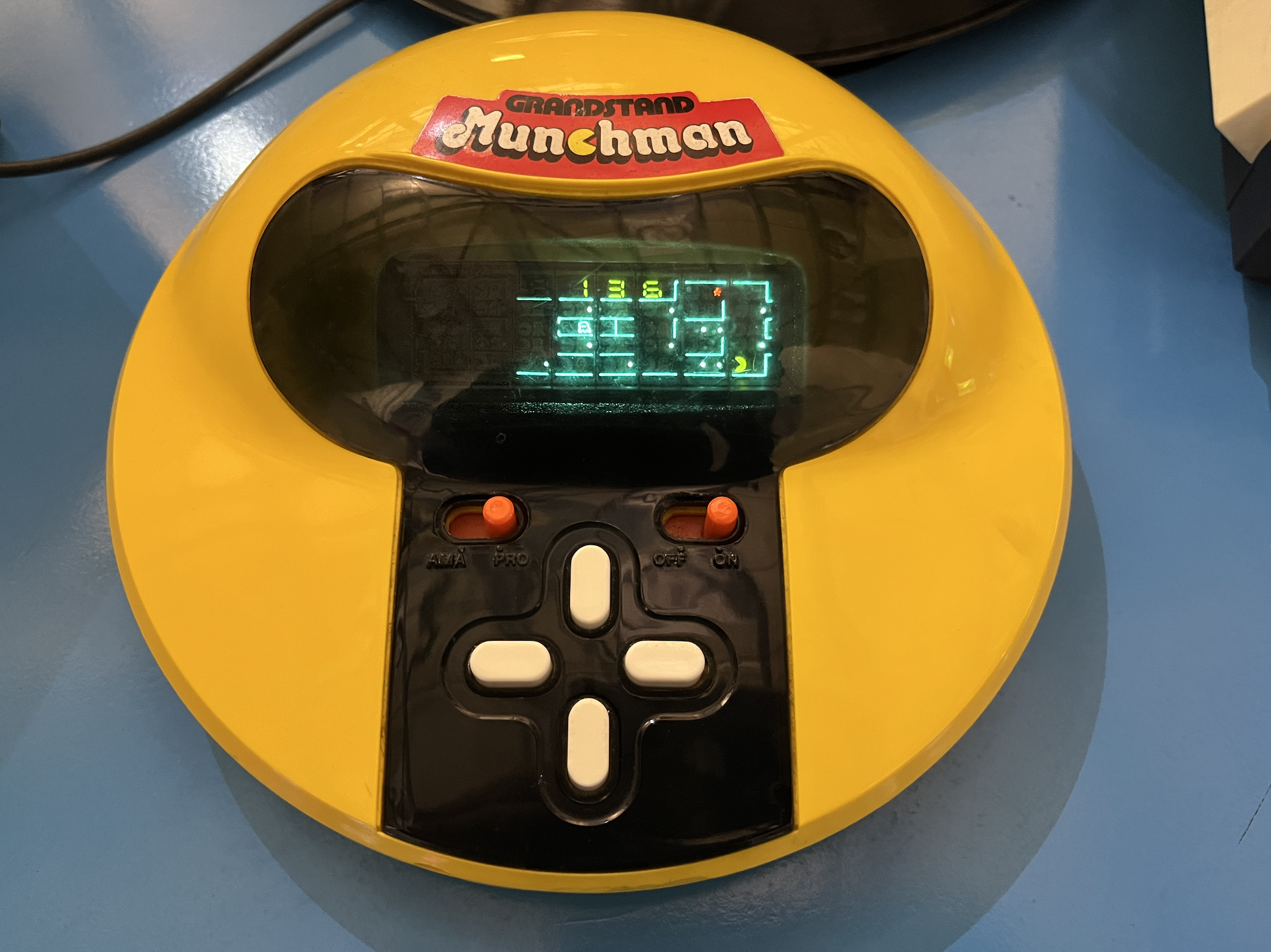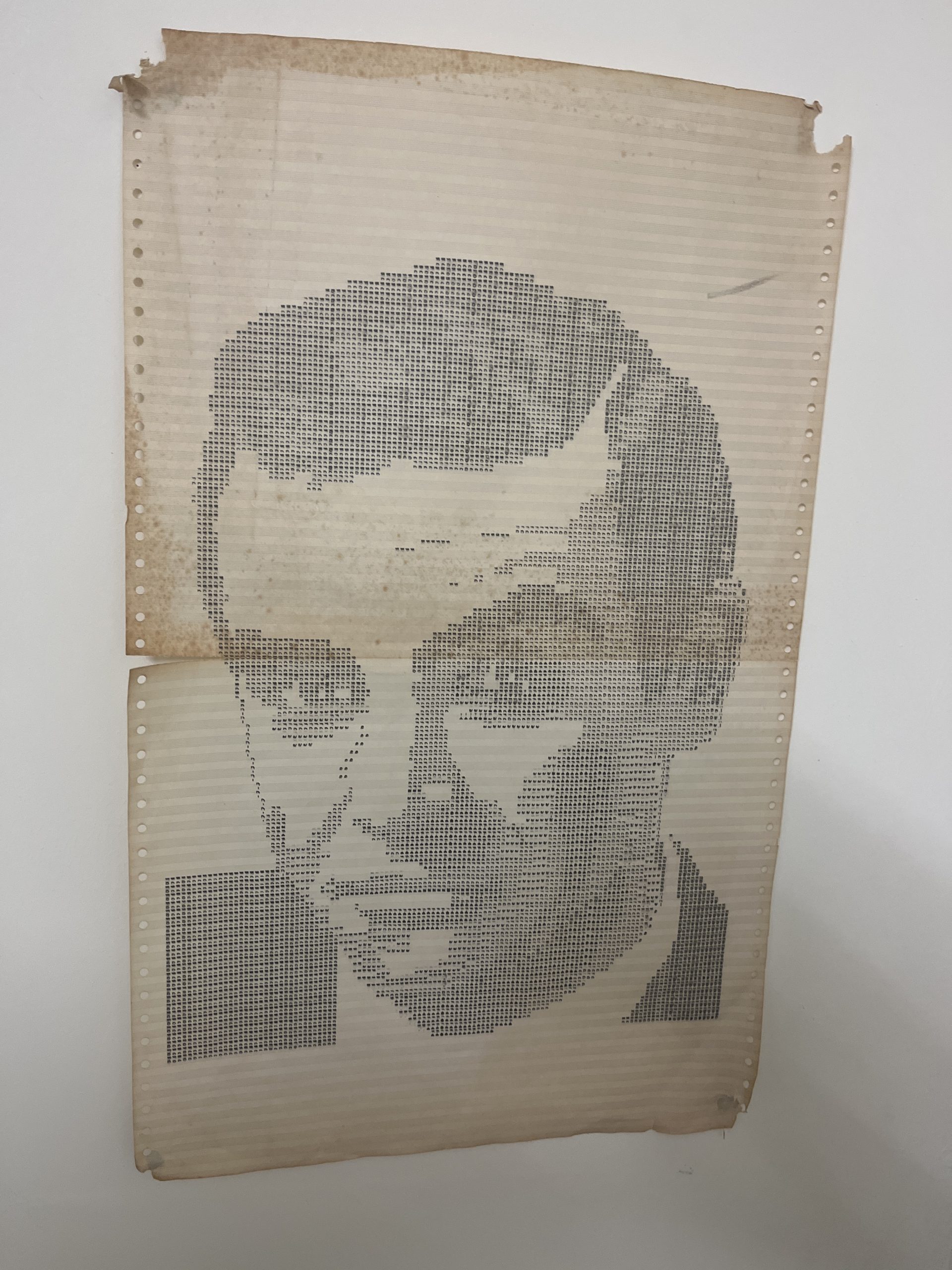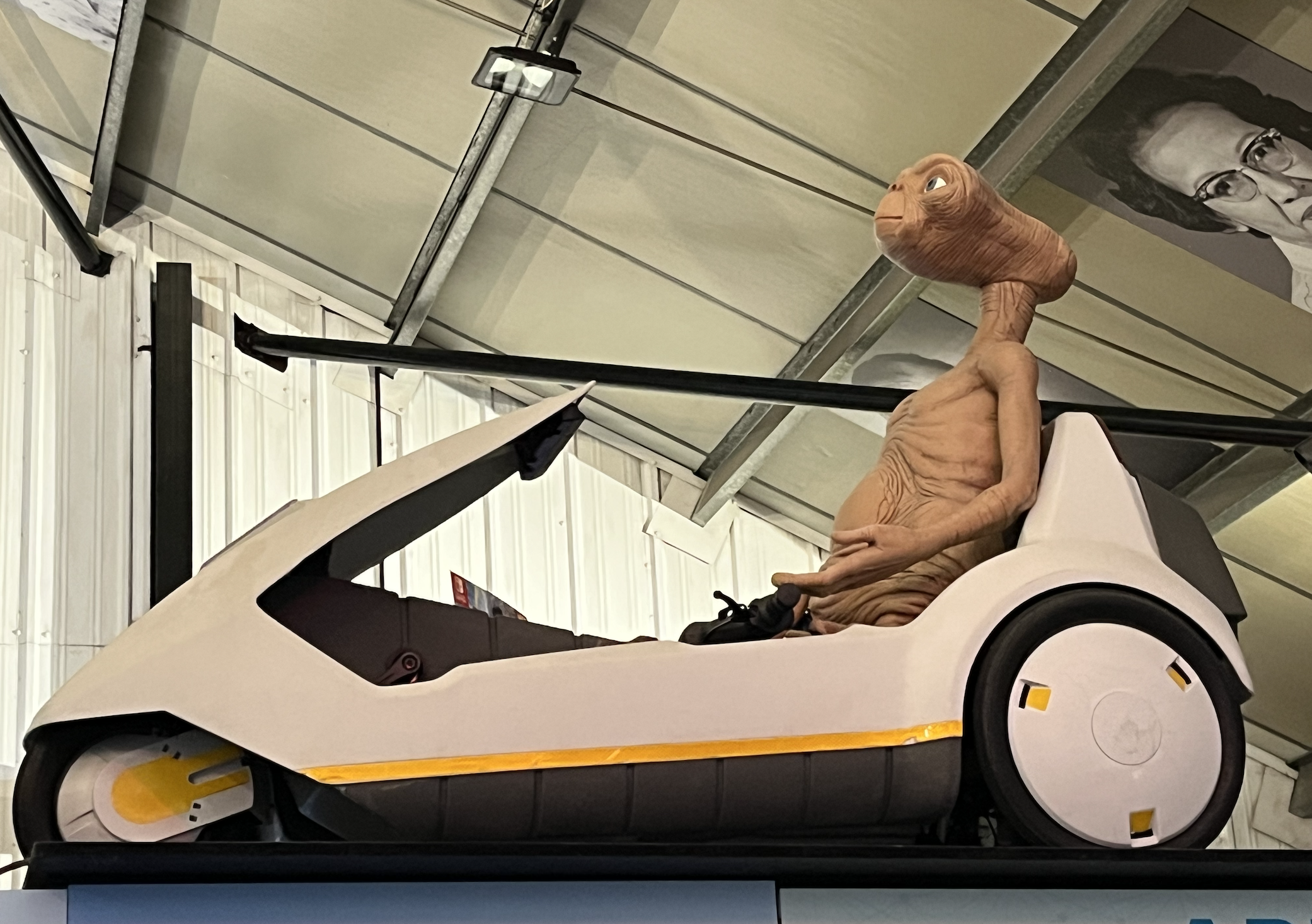The Centre for Computing History is packed away in a light industrial estate. It’s an underwhelming setting, and an underwhelming building.
But thanks to the combination of free to use computer games from the 70s to the present day, and range of artefacts, it has enough to keep adults and children in a state of mild amusement (and comatosed) for some hours.
Kids can be happy that they’re getting extra screen time, albeit slightly bemused at how shit the games their parents played were, whilst adults can reminisce about how shit the games they played were, whilst boring their kids and each other with little anecdotes from past decades.
The Microsoft Surface Table is the coolest thing there…
It still feels futuristic even if it was made in 2007. Its design gives it a social aspect that computers, tablets and phones lack. I still think there’s a future for something like this. The world is still waiting for the Star Wars hologram monster eating table top version.
In 1986 school kids were asked to contribute to a Domesday Book
I think I remember this being mentioned at the time I went to school. In the museum there’s a computer with the Domesday on a CD, and the instruction manual for how to search the information on the CD. Its got a lot of information on even the tiniest of villages. This is probably the second coolest thing in the museum, behind the Microsoft Surface Table.
Computers you had, and computers your rich friends had
The museum appears to have all the home computers that flooded the market in the 1980s. Stuff you had, and stuff your rich friends had, which you’ve spent your whole life wishing you had had. Stuff like the Commodore 64, the ZX Spectrum, the BBC, the Amstrad, and who remembers the Dragon 32 (not me, until I visited the museum).
RM Nimbus
Probably the least cool of all the computers from the 80s because it was the typical school computer, rather than a home computer. RM Nimbus is something you’ll remember, once you see the computer and the programs that run on it.
Aye, the ZX81!
Those were the days! I remember writing entire computer programmes into the ZX81, to play games. And then when you switched the computer off, the programme was wiped and if you wanted to play the game the next day you needed to write the programme out again. You worked for your game time in those days. And beware that dreaded ‘break’ button – I remember wiping hours of work through accidentally pressing it. And there was no ‘undo’ function in those days.
Binatone
Who could forget? Me (again), but it was great to play once more. Its quite a good game actually, because its all about reaction time and speed.
Atari
Classic.
Old mechanical computers
My dad used to come home with all kinds of junk. I remember him coming home with machines like this and spending his evenings and weekends getting the things to work, and giving me a go on them too. They were great objects actually, they made great clunking churning noises.
Free arcade games
What’s not to like about this? You can live childhood fantasies of playing Pacman or Space Invaders as many times as you want.
The museum has built a wall of computer game tape and cartridge cases
Some old mobile phones
Football fans might remember the Zenith Data Systems Cup, back in the early 90s
Get to play on stuff you never got your hands on when you were a kid
I couldn’t believe it when I saw this in the museum. Looking through the Argos and Littlewoods Christmas catalogues, I had always wanted one of these when I was a kid – but never got one. I’ve always wondered what the thing was like to play, and then I saw it sat on a table with a range of other similar devices. Its one of the wonderful things about the museum, that it offers you the chance to use these things, not just to look at them sat in a locked cabinet. It was a wonderful minute that I spent playing it for the first time, mission accomplished after so many decades. But after that minute, I sighed, and said quietly to myself ‘well that was pretty crap’.
You got to love a Matrix print out
And finally, ET in a Sinclair C5
More class.
